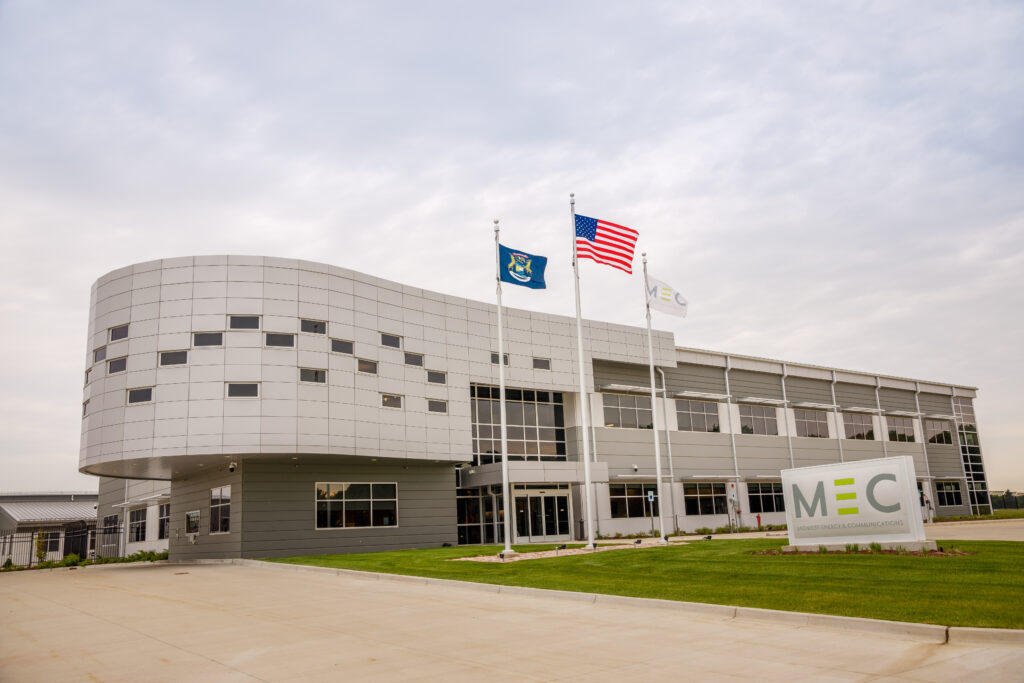Rural Electric Company Establishes Fiber Internet Service; Grows Network Capacity to 100 Gbps
Midwest Energy & Communications’ commitment to providing a fiber-based infrastructure for its rural customer base first began as a call to action from a host of satisfied — but worried — neighbors.
“We kept hearing, ‘You do the electricity thing fine, but what we need is a fiber internet solution,’” said Terry Rubenthaler, Chief Technology Officer, Midwest Energy & Communications.
MEC was founded as a rural electric cooperative in Cassopolis, Michigan, and has serviced Southern Michigan, Northern Ohio and Northern Indiana since the 1930s. At that time, rural electric cooperatives were formed to bring power and light to the rural space when the large utility providers wouldn’t deliver service.
Decades later, the modern-day challenge for MEC and local residents was much-needed access to high-speed internet for work, school and entertainment — a luxury that their urban counterparts often take for granted.

“At our core, MEC is committed to creating vibrant, relevant and sustainable rural communities,” Rubenthaler explained. “We realized if we didn’t address this issue and find a solution, no one would.”
This began a 15-year process to deliver a long-term, first-in-class internet solution to the communities MEC serves. Over the years, MEC tried several technologies, including satellite, dial-up and broadband over power lines, with limited success.
“Ultimately, fiber was the one solution that we knew would solve all of our problems,” Rubenthaler said.
| SERVICES PROVIDED | CHALLENGES | OUTCOMES |
| Wide Area Network | Customer Service | Network Partner |
| Dedicated Internet Access | Business Limitations | High Capacity |
Establishing a Foundation
When MEC first began working with Everstream, the co-op contracted 500 Mbps of Dedicated Internet Access — a network connection that would increase quickly as this new line of business grew.
After successfully completing a pilot project in 2014, MEC launched a five-year plan the following year to deploy fiber internet across its southwest Michigan service territory.
MEC leveraged its existing electric distribution grid and infrastructure to deliver a high-speed fiber option to its rural customer base. Using its own assets and inherent right-of-way access allowed the co-op the flexibility to set the pace of the project and be deliberate in its execution: Build a line, connect customers, add revenue, repeat.
More customers meant more staff — from customer service and billing personnel to field technicians, contractors and consultants — in addition to a brand-new office building and, of course, more fiber.
In time, that initial connection doubled to 1 Gbps, increased to a 10 Gbps connection and then added a second 10 Gbps circuit with Everstream in addition to a third 10 Gbps connection from another service provider.
The project proved to be wildly successful with customer interest and revenues both higher than expected.
“Everything fell into place,” Rubenthaler said — so much so that MEC approached Everstream about a long-term increase in bandwidth to accommodate the tremendous amount of growth in both customers and bandwidth consumption.
“We were growing so fast that adding bandwidth incrementally no longer made sense. We wanted to make the jump to 100 Gbps and we wanted to work with Everstream,” Rubenthaler said.
Leading The Way With 100 Gigs
In the spring of 2019, Everstream proposed a 100 Gbps Dedicated Internet Access connection to MEC. By fall, the upgrade was operational — complete with a diverse 100 Gbps connection with a redundant fiber ring between two data centers.
“The 100 Gbps connection is a protected loop with two separate routes, which also is a unique service that Everstream was able to deliver and other providers couldn’t,” explained Matt VanAlst, Director of Technology, MEC. “We have one connection to the east and another to the west, and they are active failovers if anything were to happen. With this connection, we don’t see a disruption in service — even if Everstream is conducting routine maintenance.”
At the end of 2021, MEC’s network included 2,700 miles of main line fiber and more than 18,000 active fiber subscribers – with Everstream as its single provider due to the expanded reach of Everstream’s network.
Somewhere along the journey, MEC believes it started a movement as more and more co-ops across the country are following its lead to serve communities in the rural space. Similar co-ops have decided to use their electric distribution infrastructure as a framework to enter the fiber business as well, and have approached MEC for guidance, advice and best practices.
“There are also co-ops that are willing to build the fiber network, but don’t want to operate it. There may be an opportunity to partner with them. As this project grows, we’ve realized there is a lot of potential in the region to deliver for our customers,” Rubenthaler added.